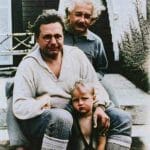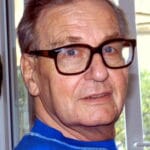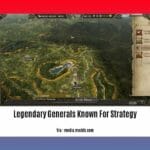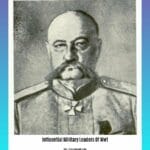Bernhard Caesar Einstein, the sole grandchild of Albert Einstein to reach adulthood, carved his own path as a skilled engineer, leaving a legacy that transcended his famous lineage. Born in Dortmund, Germany in 1930, Bernhard’s early life was punctuated by both privilege and upheaval. While inheriting a passion for knowledge, he ultimately pursued engineering, showcasing a different facet of brilliance within the Einstein family.
Early Life and Family: Navigating a World in Turmoil
As the son of Hans Albert Einstein, Albert’s eldest son, Bernhard carried the weight of a renowned name from a young age. His early years were spent in Switzerland, a period likely marked by the intellectual vibrancy of his family circle. However, the rise of Nazism in the 1930s cast a long shadow, forcing the family to flee to the United States in 1938. This dramatic relocation would irrevocably shape Bernhard’s future.
Education and Career: Forging a Path in Engineering
Following his family’s move to the United States, Bernhard pursued his education with fervor. He attended the University of California, Berkeley, where his aptitude for languages, particularly German, flourished. His academic journey later led him to ETH Zurich, his grandfather’s alma mater, further cementing the family’s connection to the institution.
While Albert Einstein’s legacy was deeply rooted in theoretical physics, Bernhard gravitated toward the practical world of engineering. This choice showcased an independent spirit, a desire to forge his own identity outside the shadow of his grandfather’s towering achievements.
Bernhard’s career path led him to work for prominent companies like Litton Industries, where he specialized in electron tube technology. While specific details of his contributions remain largely unpublicized, his work likely played a role in the rapid technological advancements of the mid-20th century.
The Enduring Legacy: Beyond the Realm of Physics
Bernhard Caesar Einstein’s life serves as a testament to the enduring power of family legacy while simultaneously highlighting the freedom to forge one’s own path. He navigated the challenges and opportunities presented by his family name with grace and determination, ultimately carving a successful career in a field distinct from his grandfather’s.
The fact that Albert Einstein has living great-grandchildren, thanks to Bernhard’s lineage, adds another layer of complexity to the family’s story. These descendants, much like Bernhard himself, have largely chosen to remain out of the public eye, valuing their privacy above the allure of their famous ancestry.
Bernhard Caesar Einstein’s story invites us to consider the multifaceted nature of legacy. It reminds us that brilliance can manifest in diverse forms, often taking unexpected turns that enrich the tapestry of a family’s history.
What Became of Einstein’s Children?
Albert Einstein fathered three children: Lieserl, Hans Albert, and Eduard. Lieserl’s story remains shrouded in mystery, with historians unsure if she was adopted or died in infancy.
Hans Albert, Bernhard’s father, echoed his own father’s intellectual curiosity, becoming a renowned hydraulic engineer. His work focused on sediment transport in moving water, and he made significant contributions to the understanding of river dynamics. Hans Albert had four children, ensuring the continuation of the Einstein line.
Eduard, Einstein’s youngest son, faced a life marked by mental illness. Diagnosed with schizophrenia, he spent a considerable portion of his life in institutions, highlighting the poignant contrast that can exist within families.
The varied paths of Einstein’s children and grandchildren illustrate that while intellectual prowess may be a shared trait, individual destinies are shaped by a complex interplay of factors.
If you’re keen to explore further:
- Discover more about Bernhard Caesar Einstein here.
- Delve into the intricacies of Bernhard Einstein’s work on relativity here.












